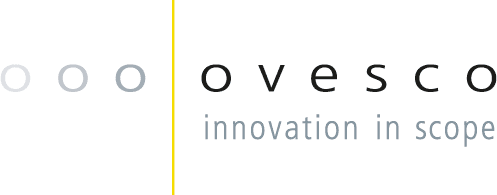Schmidt A, Beyna T, Schumacher B et al., affiliated to different German hospitals (Ludwigsburg, Freiburg, Dusseldorf, Essen, Ulm, Augsburg, Dortmund, Krefeld and Tuebingen) published a prospective multicenter study which evaluates efficacy and safety of the FTRD device for resection of colorectal difficult adenomas (non-lifting and/or at difficult locations), early cancers and subepithelial tumours (SET). Hitherto, small retrospective studies had shown feasibility of the EFTR technique in the before-mentioned indications.
In total, 181 patients were recruited. The overall technical success rate was 89.5%, the overall R0 resection rate 76.9%. In 127 patients with difficult adenomas and benign histology, R0 resection rate was 77.7%. In 14 cases, lesions harboured unsuspected cancer, another 15 lesions were primarily known as cancers. Of these 29 cases, R0 resection was achieved in 72.4%; 8 further cases had deep submucosal infiltration >1000 µm. Therefore, curative resection could only be achieved in 13/29 (44.8%). In the subgroup with SET (n=23), R0 resection rate was 87.0%. In general, R0 resection rate was higher with lesions equal to or smaller than 2 cm vs >2 cm (81.2% vs 58.1%, p=0.0038). Adverse event rate was 9.9% with a 2.2% rate of emergency surgery. Three month follow-up was available from 154 cases and recurrent/residual tumour was evident in 15.3%.
In summary, this first prospective multicenter study on the FTRD System demonstrates its efficacy for colorectal lesions that otherwise would have required more invasive techniques (mainly surgery), especially in lesions equal to or smaller than 2 cm with acceptable complication rates. The authors state that the curative resection rate for early cancers was too low though to recommend its primary use in this indication for now. They state that further comparative studies will show the clinical value and the longterm outcome in such lesions.
Colonoscopic full-thickness resection using an over-the-scope device: a prospective multicentre study in various indications
Schmidt A, Beyna T, Schumacher B, Meining A, Richter-Schrag HJ, Messmann H, Neuhaus H, Albers D, Birk M, Thimme R, Probst A, Faehndrich M, Frieling T, Goetz M, Riecken B, Caca K (2017)
Gut 2017;0:1–10. doi:10.1136/gutjnl-2016-313677


 Deutsch
Deutsch  Français
Français 